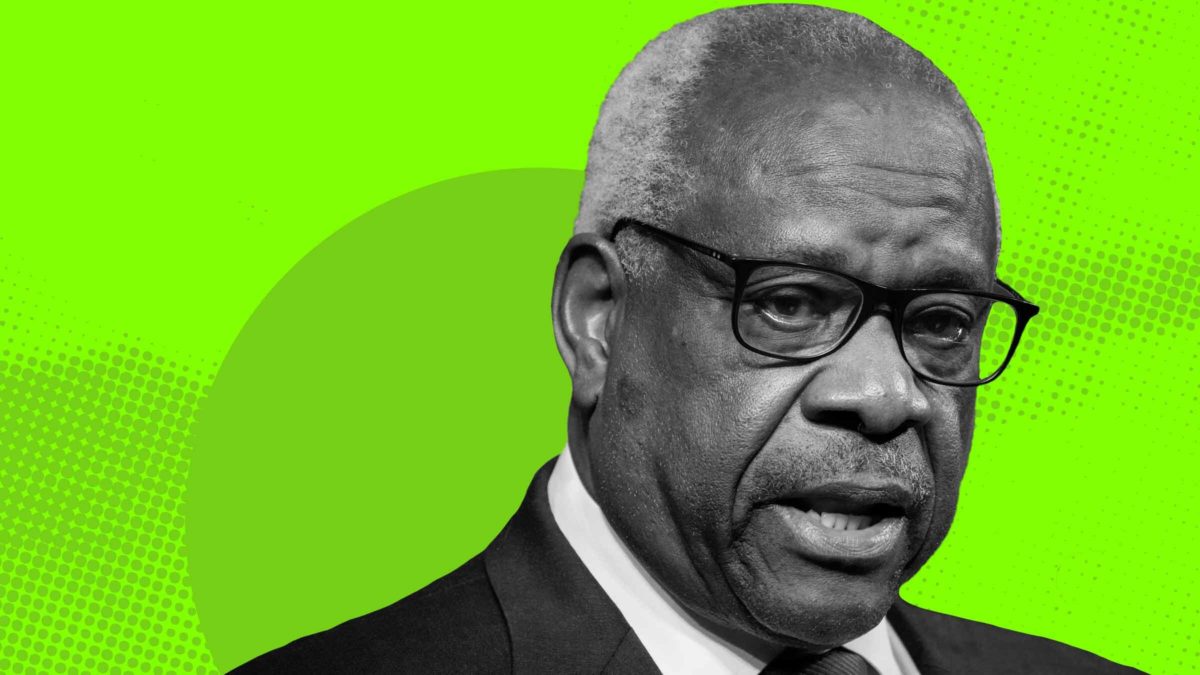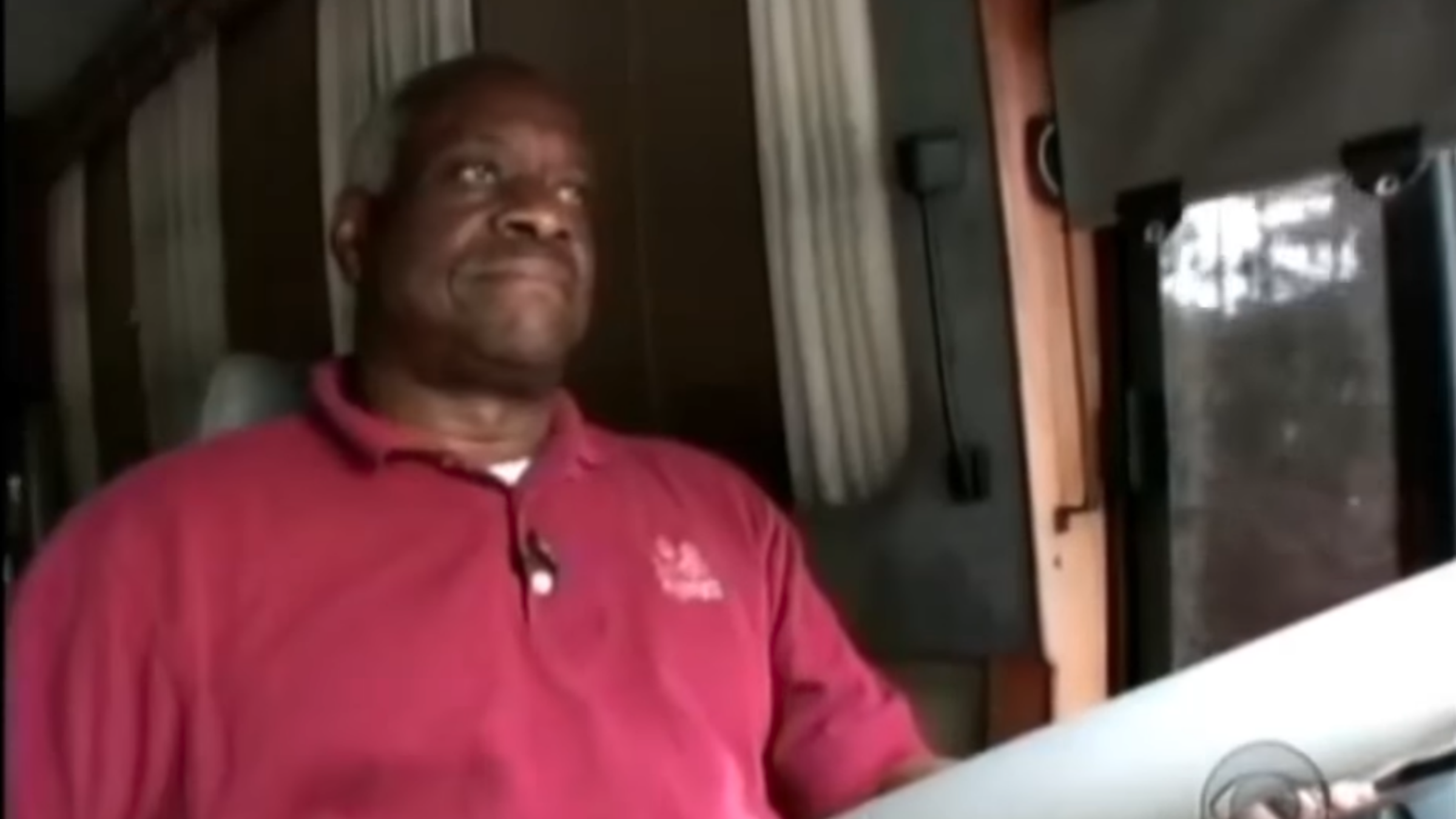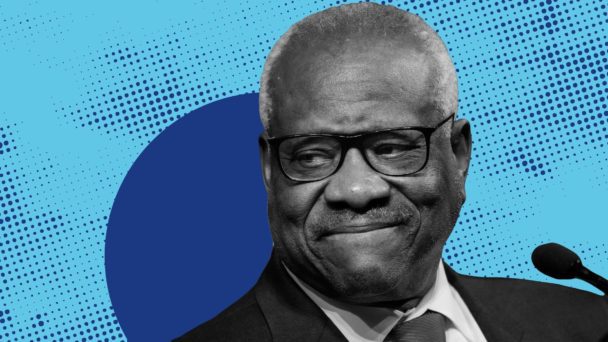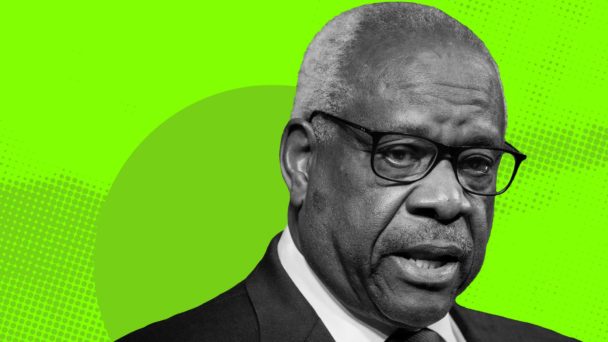Supreme Court Justice Clarence Thomas and I both took out a loan of roughly a quarter million dollars but, somehow, in his mind, I am the only one obligated to pay it back.
Thomas has come an extraordinarily long way since he was born into poverty 70-odd years ago, but he takes care to present himself as if he’s still the salt of the earth boy from Georgia, not an artisanal sea salt attorney from Yale. He has often talked about how hard he worked to save up for his prized RV, and how much he loves hanging out with common folk in Walmart parking lots. “There’s something normal to me about it,” he said in a 2020 documentary.
Clip via YouTube
Neither his RV nor his acquisition of the RV, however, were normal: Back in August, The New York Times reported that Thomas’s 1999 purchase of his Prevost Le Mirage XL Marathon was financed by a longtime friend, healthcare magnate Anthony Welters, who lent him some part of the luxury motorcoach’s $267,230 purchase price. This news prompted people across the country to reevaluate the caliber of their friendships, and the Senate Finance Committee to initiate an investigation.
In a memorandum published yesterday, the Committee revealed that Welters forgave a “substantial” amount of the principal balance on the loan, and potentially all of it. However, Thomas did not report the debt forgiveness on his mandatory ethics disclosures, which, as the Committee notes, raises “questions as to whether Thomas properly reported the associated income on his tax returns,” too.
But I have another question: Why not me?!
Sure, there are a couple things distinguishing my situation from his. Thomas, the Court’s resident baller and shotcaller, borrowed money from a fabulously wealthy friend to buy a tricked-out RV with orange flames on the sides. I, your friendly neighborhood legal journalist, borrowed money from the federal government to go to law school. Yet I’m still on the hook and he’s not because Thomas and I live in very different worlds that are governed by different sets of rules—rules that he plays a key role in making. Last summer, Thomas was part of the 6-3 majority which blocked the Biden administration’s student debt relief in Biden v. Nebraska. In that case, the six conservative justices decided that the authority Congress granted to the Secretary of Education to “waive or modify any statutory or regulatory provision” relating to student loan repayment did not allow the Secretary of Education to do literally that.
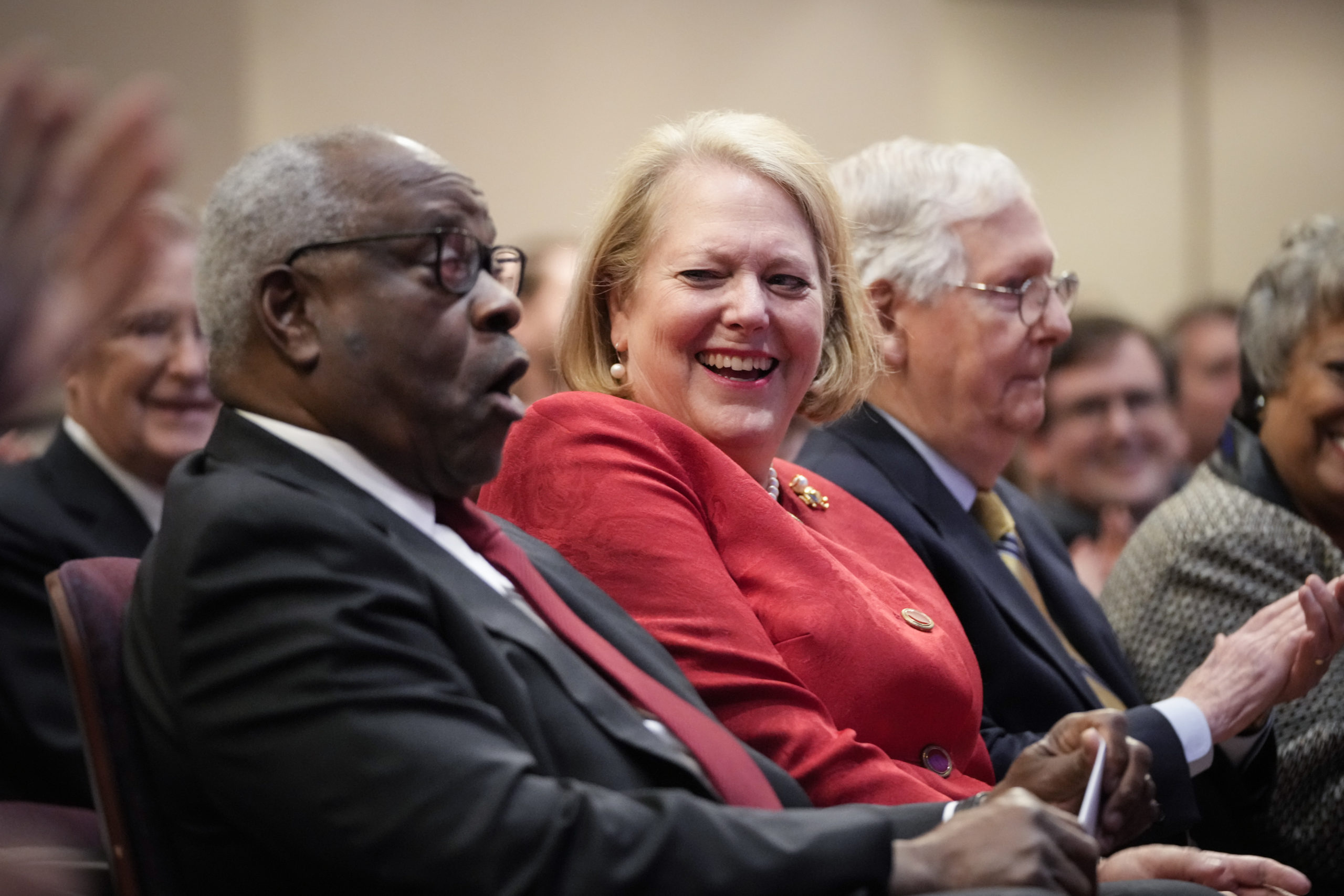
“So then I said, yeah, I’ll pay the loan in full!” (Photo by Drew Angerer/Getty Images)
Underlying this decision, of course, is the conservative obsession with what they represent as fairness and personal responsibility—the idea that an individual’s well-being is no one’s concern but their own, so everyone should just live within their means and pay what they owe. When the government loans me a quarter million dollars before my prefrontal cortex has fully developed so I can read long-dead white guys beefing over the Constitution, that’s financial imprudence on my part. When Thomas’s buddy tells him not to worry about six figures’ worth of pocket change, that’s the reward for being fiscally responsible enough to befriend a multimillionaire. Forgiveness for me, but not for thee.
This latest installment in the saga of Clarence Thomas’s ethical entanglements drives home that the distance between him and the people whose rights and lives he controls is too great for any RV to cover. As Finance Committee Chair Senator Ron Wyden commented yesterday, “Regular Americans don’t get wealthy friends to forgive huge amounts of debt so they can buy a second home.” There are tens of millions of people like me who had the audacity to want to go to school without being rich, and who now have no idea if or when their net worth will get above zero. The Biden administration tried to ease this financial and psychological burden. Thomas denies us the relief that he gladly accepts for himself.
